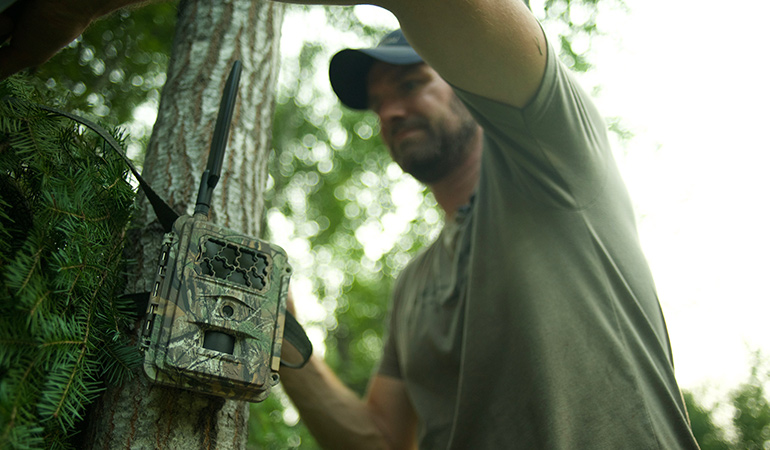In-season usage in many states is up in the air, so be aware. As far as pre-season usage of cellular cameras, you’ve pretty much got the green light in most regions where whitetails reign supreme.
The question is - are they worth the money? Do they really provide an advantage over traditional cameras? The answer is a resounding - maybe.
Benefits of Cellular Cams
The obvious benefit to using a cellular-enabled camera is that once you’ve set it up, you can leave the woods alone. It allows you to sit back in the comfort of your home without wondering if your batteries are still juiced up, if someone has stolen it, or if it inexplicably went the way of the dodo - all while gathering intel in an undisturbed woods.Throughout the summer you can gather info on the comings and goings of the local ungulates, and with most cameras, adjust your settings and check battery levels remotely. This means you’re aware and in control, without doing much more than messing with your smartphone.
It’s incredible, really. And this wave of cameras is crashing hard on the industry right now - to the point where pretty much every manufacturer is in the game. That tells you something about demand, which if you’ve ever used one, you probably understand.
These cameras are addictive, and it’s exciting to see new-image notifications showing up on your phone. I honestly believe that if any hunter wants to see his day-to-day productivity at work or home go right off of a cliff, cellular-enabled cameras are the way to do it. They are fun - no doubt about that.
Cons Of Cellular Cams
As mentioned above, the biggest downfall of these cameras might be their legality in your given area. If using one means you’re on the wrong side of the law, then it’s obviously no good.But there is also the ethical conundrum associated with this level of technology. I can remember when they first hit the scene years ago, and a fellow from one of the camera companies told me how he used it during turkey season to check in on what fields had strutting birds in them.
If they hit the 9am lull, they’d go to where the cameras showed longbeards were at right then. He thought it was amazing, I felt differently.
And I still do. I’ve used celullar cameras for deer and bear on properties that were at least a couple hours from my house. My reasoning was that I couldn’t use real-time intel to try to gain an advantage because, at best, I’d be at least 24 hours behind the most current images if I decided to go hunting.
Eventually, they became something of a novelty for me. I put one or two out each summer and then pull them before the season or switch off the cellular function. I still really enjoy getting images from them during the summer and probably always will.

没有评论:
发表评论